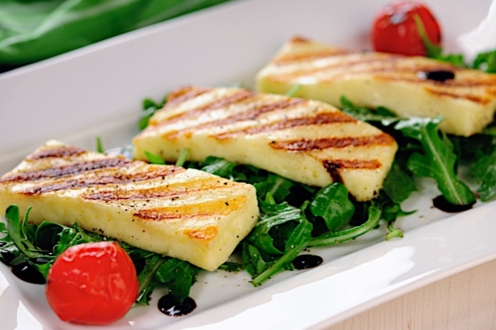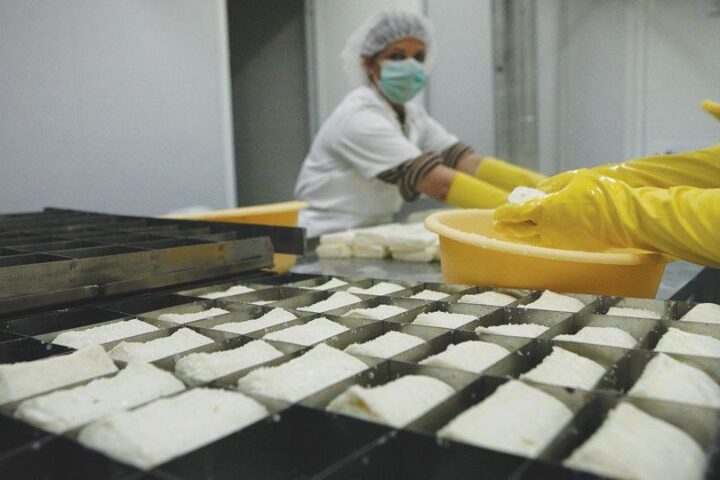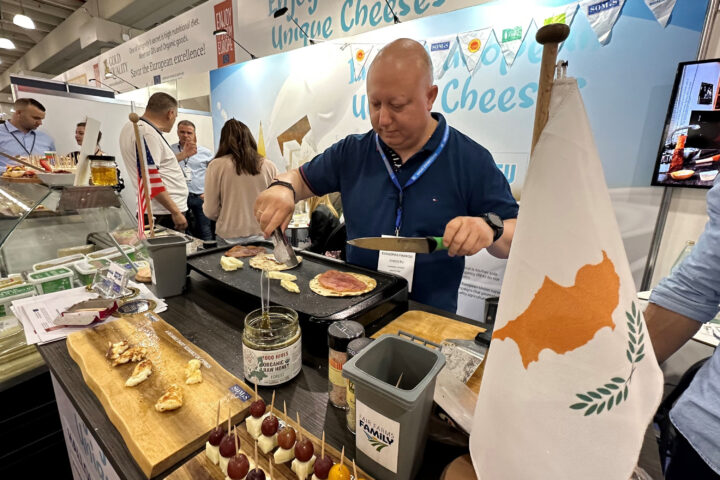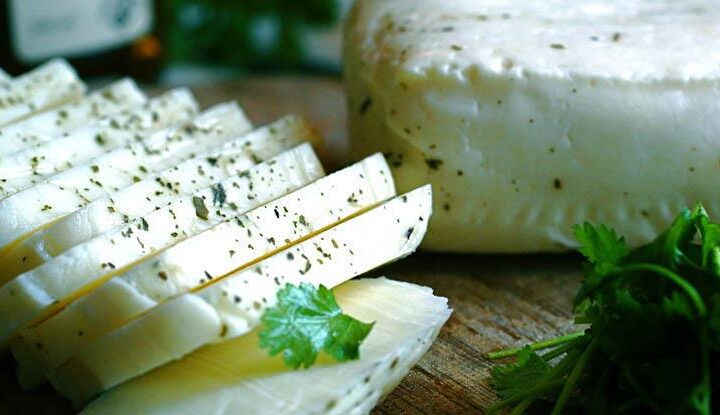The island’s traditional cheese PDO status at stake
The future of Cyprus’ flagship export, halloumi, is hanging in the balance as EU courts are set to rule on February 21 on a lawsuit filed by cow breeders and cheesemakers challenging the traditional cheese’s status as a Product of Designated Origin.
The ongoing tug-of-war over the cow-to-sheep milk ratio in the recipe between cheesemakers and dairy farmers and the government poses, once again, a threat to halloumi’s PDO status, with imitators to the crown waiting on the sidelines.
Dairy producers on the island are frustrated with the agriculture ministry and the government, which plan to double the goat’s and sheep’s milk quota in halloumi from 10% in October to 25% on February 1, as per an agreement brokered in 2022.
According to the existing decree issued in October, the mandatory quota of sheep’s and goat’s milk in manufactured halloumi was increased to 19% from 10%.
In response to the October decree, cheesemakers had threatened to close their factories from January 10 due to the ongoing dispute over the ingredients defining PDO halloumi.
On the other hand, cow breeders had threatened to spill their milk outside the Presidential Palace if the dairies were shut down.
Under pressure from cheesemakers and cow breeders, the government proposed extending the validity of an existing decree regulating the composition of halloumi cheese to February 21.
This proposal followed a meeting on Thursday afternoon chaired by President Nikos Christodoulides and with the participation of all involved parties.
While dairy producers welcomed the development, they maintained that increasing the goat and sheep milk ratio would endanger exports.
Cheesemakers, represented by Michalis Koullouros, a board member of the cheesemakers’ association, told the Financial Mirror that they would internally debate the proposal and decide accordingly.
If they reject the government’s pitch, their strike action will proceed.
“We would like to note our satisfaction over the apparent agreement that we are all on the same page, with the government acknowledging that the available quantities of goat and sheep milk are not sufficient to maintain exports, should the ratio be further altered,” said Koullouros.
Pressuring
Prior to Thursday’s meeting, cheesemakers had complained the agriculture ministry was pressuring them to stop producing halloumi cheese from exclusively sheep’s and goat’s milk.
Koullouros said, “this is not feasible, as no surplus of milk exists to cover the needs for both that type of halloumi and for the halloumi that also contains cow’s milk”.
Cheese makers further argue that while the PDO file aligns with EU guidelines for a balanced split between cow’s milk and goat’s or sheep’s milk in halloumi, it poses a threat to producers exclusively crafting goat and sheep halloumi.
Government spokesman Constantinos Letymbiotis later announced that the current decree on halloumi would be extended from February 1 to February 21, coinciding with the day the European General Court will issue a ruling on the matter.
If the EU court rules in favour of cow breeders, halloumi could lose its PDO status, exposing it to imitation worldwide.
Ceasefire deal no longer valid
In July 2022, a ceasefire deal was brokered to address the contentious matter of the cow-to-goat and sheep milk ratio, with the agriculture ministry agreeing to defer the enforcement of the PDO milk ratio until 2024.
The PDO submission aimed for goat or sheep milk to surpass 50% by 2024, gradually increasing each year, reaching the 50% threshold by 2029.
This milk ratio has become a major point of contention between the government and cheesemakers, with concerns raised about its potential impact on halloumi exports.
As the cheesemakers’ representative, Michalis Koullouros reminded, “the association has disengaged itself from the deal, as we believe that the government has not kept to its side of the bargain”.
He argued that the deal was subject to the availability of goat and sheep milk, to be evaluated every six months.
The Agriculture Ministry was not available for comment on the recent developments.
Goat and sheep breeders left out
Meanwhile, a source close to goat and sheep breeders argued that they are getting the short end of the stick.
Based on data from the Agriculture Ministry, the source highlighted the potential for higher profits if goat and sheep herders process the product themselves.
“According to data from the Agriculture Ministry, it is evident that if the goat and sheep herders sell the milk for EUR 1.45 per litre and it takes 6 litres to produce one kilogram of halloumi, they would receive EUR 9 from the industry for the kilogram of halloumi produced.
“However, if they choose to process the product themselves, they have the opportunity to sell it independently for around EUR 18 per kilogram,” the source pointed out in a bid to make the goat breeders’ case.
Halloumi cheese, considered the island’s ‘white gold,’ contributed EUR 1.34 bln to exports from 2017 to 2021, with expectations of exponential revenue growth in the years to come. In 2022, Cyprus dairy producers exported halloumi worth EUR 284 mln according to the Ministry of Commerce.










